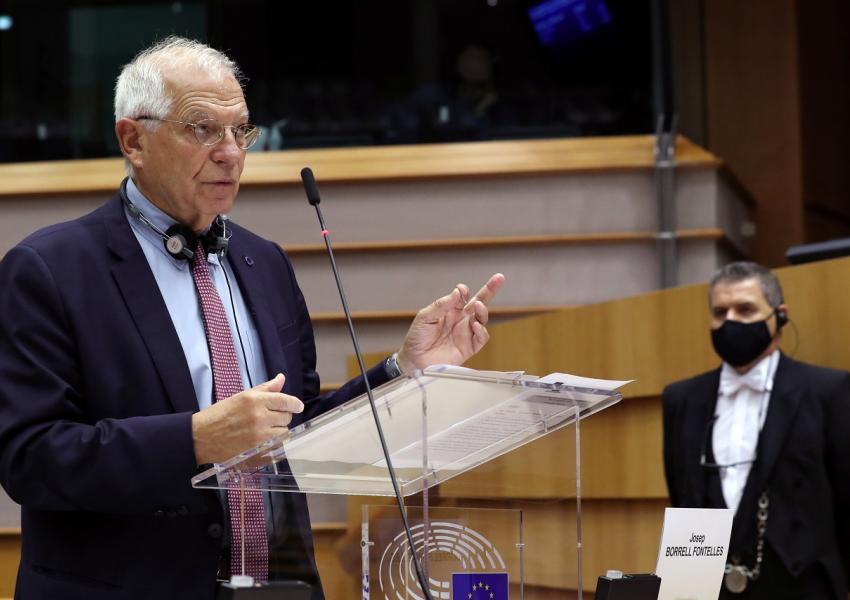
EU Condemns Human Rights Violations In Iran, Remains Loyal To Nuclear Deal
The High Representative of the European Union, Josep Borrel, once again raised the issue of human rights violations in Iran and condemned the execution of wrestler Navid Afkari, while criticizing the Islamic Republic’s policy of not releasing political prisoners during the coronavirus epidemic and incarcerating dual citizens.
In his speech at the in EU parliament on Wednesday, Borrel pointed out several “deeply concerning” human rights violations that recently occurred in Iran and said: We also condemned publicly the execution of Iranian wrestler Navid Afkari and called on the Iranian authorities to investigate allegations that he was tortured in detention.
“We underline to all our partners, and not just Iran, that the perpetrators of such acts must be held accountable,” he added.
Wrestler Navid Afkari was arrested for participating in the 2018 protests in Iran and according to statements before his death, his attorney and another prisoner, he was heavily tortured for confession. He was executed in early September despite the international uproar.
Earlier in his speech, Borrel mentioned the terrible conditions of political prisoners in Iran and demanded better treatment by the goverment, especially during the pandemic.
“We have also witnessed several deeply concerning human rights developments recently. This includes the treatment of Nasrin Sotoudeh and the many other political prisoners who remain imprisoned, whose health is at risk and should be released on humanitarian grounds, or at least have prompt access to medical assistance if they require it,” Borrel said.
Borrel also criticized the Islamic Republic for its practice of incarcerating dual citizens and using them as pawns for negotiations.
“We continue to engage the Iranian authorities on their distressing practice of arbitrarily detaining European Union-Iranian dual nationals,” Borrel said and added, “We acknowledge the temporary release of French citizen Fariba Adelkhah, no individual should be used as a pawn and I want to once again urge the Iranian authorities to cease this policy.”
The EU high representative also pointed out the impact of US sanctions on Iran’s deteriorating economy: “The International Monetary Fund is predicting a 10% drop in GDP this year, [after a] 8,5 drop last year; unemployment is at 16%; [within the past year] the Iranian rial has lost almost half its value towards the US dollar; trade with the EU has decreased.”
Despite the fact that the Islamic Republic officials and even the president and foreign minister have repeatedly stated that big policy decisions in Iran are all made by the supreme leader, Josep Borrel once again claimed that the sanctions in Iran have led to “a strengthening of those opposed to the nuclear deal, who are distrustful of the West and who do not support diplomacy and engagement.”
High Representative Borrel reiterated that the EU will stand by Iran and the nuclear deal against the attempts made by the US to bring back the UN sanction. Borrel claimed that Eu’s treatment of Iran is “a holistic approach to Iran that takes into account the different facets of our bilateral relationship.”
“Engagement with Iran on all these issues remains in the European Union’s vital strategic interest, and that is why we are approaching the issue the way we do,” he concluded.








